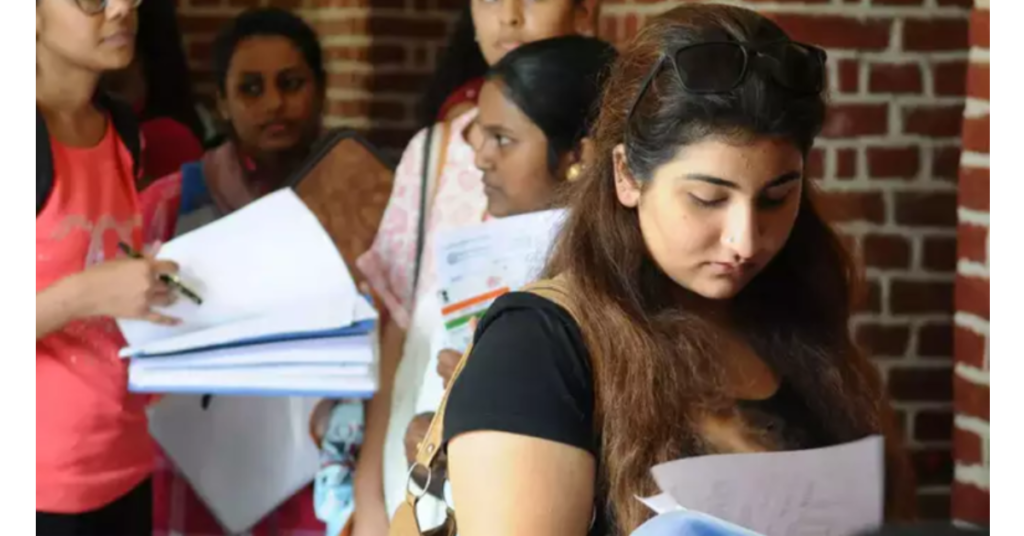New UGC rule restricts Ph.D. supervision to PG research centers, raising concerns about research access and mentor eligibility in India’s UG institutions.
India’s academic research ecosystem finds itself at a crucial crossroads. The University Grants Commission (UGC) has recently issued a directive that only professors affiliated with universities hosting established postgraduate research centers can officially supervise Ph.D. students. While this move is intended to ensure institutional accountability and uphold research quality, it seems to contradict the very spirit of the National Education Policy (NEP) 2020, which champions the democratization of research—even from the undergraduate level.
So where does this leave aspiring researchers and their mentors in smaller colleges?
Accessibility versus quality
On paper, the UGC’s decision makes sense. Research thrives in environments with solid infrastructure, academic scrutiny, and peer networks. Limiting supervisors to designated PG research centers might seem like a quality-control measure. But here’s the catch—it automatically excludes a large number of highly capable, well-published, and experienced teachers from non-PG colleges, especially those in rural and semi-urban India. Many of these educators have guided students informally, contributed to peer-reviewed journals, and even led successful research projects. But now, they’re suddenly disqualified—not for lack of merit, but for not belonging to the “right” institution.
Are we suggesting that institutions, not individuals, determine research potential?
What Really Makes a Research Mentor?
At its core, research is driven by individual curiosity, insight, and dedication. Good mentorship is not exclusive to a campus with a PG tag. Across the country, numerous college professors—despite limited resources—have been inspiring young minds to pursue academic inquiry, win fellowships, and innovate. Ironically, NEP 2020 encourages research right from the undergraduate level, pushing students to explore complex ideas and contribute to knowledge creation early on. But if the policy restricts who can guide students at the highest level, where is the continuity? How do we reconcile these conflicting visions?
Why This Policy Could Hurt More Than Help
This new restriction could have unintended consequences. First, it may overload the few PG centers with too many research scholars and too few mentors—diluting the quality of supervision. Second, it risks discouraging passionate, research-driven faculty in UG colleges, many of whom are already working in resource-constrained settings. Third, it draws an unnecessary line between “research-worthy” and “non-worthy” institutions, reinforcing hierarchies that have long hindered Indian academia. And in today’s digital age, that division is even more arbitrary. With virtual labs, open-access journals, online collaboration platforms, and remote peer networks, impactful research is no longer confined within the four walls of elite institutions.
A More Inclusive Way Forward
India needs a more thoughtful, inclusive model—one that acknowledges both institutional standards and individual merit. Here’s how we can get there:
Digital Research Ecosystems: Equipping all accredited colleges with access to digital tools, journals, databases, and collaborative platforms can bridge the research divide and foster equity in knowledge production.
Merit-Based Accreditation: Allow eligible faculty from non-PG colleges to apply for research supervision roles based on proven track records—research grants, published work, citation impact, and innovation.
Institutional Audits Over Blanket Bans: Instead of disqualifying all UG colleges, the UGC should conduct periodic audits to assess whether a college has the infrastructure and ethos needed for research mentorship.
Collaborative Mentorship Models: Introduce co-supervision models where a UG faculty member mentors a scholar alongside a guide from a PG research center. This encourages academic partnership and learning across institutions.

If India is serious about becoming a global knowledge hub, we must move away from rigid hierarchies and recognize that academic brilliance can come from anywhere. By investing in people—not just places—we can build a research ecosystem that is both robust and inclusive.
Let’s not gatekeep innovation. Let’s grow it—together.
Also Read: Ministry Of Education Forms 9-Member Committee To Address Coaching Dependency Among
Hindi Learning Not Compulsory Under NEP, Clarifies RSS Education Wing –